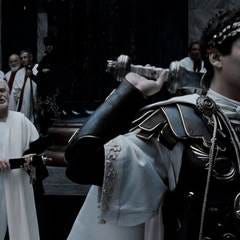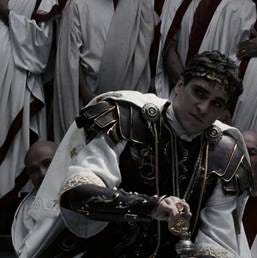Kingship and the Common Good:
The Political Theory of St. Thomas Aquinas
The perennial question, ‘What is the best form of government?’, has occupied the minds of political theorists and philosophers from the Golden Age of Greece to the modern world. Among the most profound contributors to this discourse is St Thomas Aquinas, the 13th‑century Dominican theologian whose synthesis of Aristotelian philosophy and Christian theology continues to shape Western thought.
In both his Summa Theologiae and his treatise De Regno ad Regem Cypri, Aquinas offers a nuanced vision of political order which is in reality, a synthesis of the Greco-Roman tradition, Sacred Scripture, and the writings of St Augustine of Hippo. He affirms that monarchy is the most excellent form of government in theory, yet tempers this preference with a sober recognition of fallen human nature and the dangers of tyranny when power is concentrated in the individual.
In response, Aquinas advocates for a mixed constitution – an arrangement that harmonizes monarchy, aristocracy, and democracy into one political form – so that government may best serve its true end – the bonum commune (common good).
Reminder: you can get tons of useful members-only content and support our mission for a few dollars per month 👇
Two full-length, new articles every single week
Access to the entire archive of useful knowledge that built the West
Get actionable principles from history to help navigate modernity
Support independent, educational content that reaches millions
The Purpose of Government: The Common Good
For Aquinas, political philosophy cannot be separated from moral theology. He maintains that government exists not merely to maintain order or secure private interests, but to direct human beings toward their proper end – or telos.
In the Summa Theologiae, Aquinas explains that law is “nothing else than an ordinance of reason for the common good, made by him who has care of the community, and promulgated”. Thus, the legitimacy of any government rests upon its orientation toward the natural law and common good. A ruler (or rulers) who govern for private advantage or personal aggrandizement rather than the good of those over whom he reigns violates and undermines his own right as ruler, compromises his legitimacy and instead, is designated a tyrant – which is the disordered rule of one.
This principle forms the basis of Aquinas’ entire political vision. The common good is not reducible to the sum of individual goods, nor is it a utilitarian calculus of majority preference. Rather, it is the flourishing of the community as a whole, ordered toward justice, peace, and ultimately the divine law. Government, then, is a moral enterprise. It must cultivate virtue, restrain vice, and secure conditions in which human beings may live well together.
The Case for Monarchy
In De Regno, Aquinas begins by considering the analogy of governance in nature. Just as the universe is ruled by one God, and the human body is directed by one soul, so too, he argues, is it fitting that a political community be ruled by one person.
“For it is manifest”, he writes, “that what is one is more apt to move and to direct than what is many.” Unity of command fosters peace, stability, and decisiveness, whereas divided authority risks discord and paralysis. Aquinas thus concludes that monarchy, in its pure form, is the best regime. A single ruler can embody the unity of the community, act swiftly in times of crisis, and provide a stable succession. He even allows that monarchy may be hereditary (a king) or elective (a consul or president), provided that the ruler governs justly.
In this sense, Aquinas echoes Aristotle’s preference for kingship as the most excellent form of rule when exercised in accordance with natural law.
Monarchy and Tyranny
Yet Aquinas is no naïve monarchist. He is acutely aware of the dangers inherent in concentrating power in one man – particularly, a hereditary monarch. The very unity that makes monarchy efficient also makes it perilous, for if the king turns from the common good to his own private interest, the result is tyranny – the worst corruption of government. In his De Regno, Aquinas warns, “it is not unjust that the king set up by that multitude be destroyed or his power restricted, if he tyrannically abuses the royal power”.
Here Aquinas departs from a purely absolutist conception of monarchy. The ruler is not above the law; he is bound by natural and divine law, and his authority is derived from the community he governs. Tyranny, therefore, is not merely a moral failing but delegitimizes the ruler leaving them susceptible to just political rebellion. Yet, Aquinas counsels prudence, maintaining that rebellion against a tyrant may unleash greater evils than the tyranny itself. “He should be tolerated even in his tyranny”, he writes, “on account of the greater evil to be avoided”.
Aquinas’ political theory is inseparable from his doctrine of law. In the Summa Theologiae, he distinguishes between just and unjust laws. Just laws are those ordered to the common good, made by legitimate authority, and proportionally applied. Unjust laws, by contrast, are “acts of violence rather than laws”. When rulers enact unjust laws, they forfeit their moral authority, and subjects may in conscience resist them.
He concludes that only when the harm of tyranny outweighs the dangers of rebellion may the people justly depose their ruler (link to previous article on political rebellion here).
The Mixed Constitution
Recognizing both the excellence of monarchy and its dangers, Aquinas proposes a mixed form of government that incorporates elements of monarchy, aristocracy, and democracy.
In the Summa Theologiae, he praises the constitution of the ancient Israelites, which combined these elements: “This regime is partly kingdom, since there is one at the head of all; partly aristocracy, in so far as a number of persons are set in authority; partly democracy, [or] government by the people, in so far as the rulers can be chosen from the people, and the people have the right to choose their rulers”.
It is important to observe that in his political philosophy, Aquinas consciously refrains from endorsing any singular form of government in its pure state – be it monarchy, aristocracy, or democracy. Rather, he recognizes that each, when isolated, is susceptible to degeneration and injustice. Thus, he advocates for a mixed constitution wherein the strengths of each form temper the weaknesses of the others, fostering stability and the common good.
In accordance with Polybius’ classical doctrine of anacyclosis; monarchy, when corrupted, devolves into tyranny; aristocracy into oligarchy, the rule of the few for private gain; and democracy, when disordered, into ochlocracy, the rule of the mob, marked by lawlessness and political violence.
Aquinas, ever attentive to the moral ends of political life, maintains that a mixed constitution tempers the strengths and weaknesses of each individual form. Thus, he favors a regime that harmonizes all three elements into a functioning, symbiotic relationship. The monarchic element provides unity and decisiveness; the aristocratic element, composed of the wise and virtuous, ensures deliberation and counsel; and the democratic element, composed of the citizens, promotes civic participation, social mobility, and the consent of the people – which ultimately prevents political alienation and abuse.
By balancing these three elements effectively, Aquinas envisions a polity that is both stable and just, resistant to corruption while oriented toward the common good.
The Enduring Relevance of Aquinas’ Political Philosophy
St Thomas Aquinas’ political philosophy offers a profound synthesis of realism and idealism. He affirms monarchy as the most excellent form of government in theory, for it mirrors the unity of divine and natural order. Yet he tempers this preference with a sober recognition of fallen human nature and the ever‑present danger of tyranny when power is concentrated into one individual – or concentrated into one element of government. To safeguard the common good, he advocates a mixed constitution that balances monarchy, aristocracy, and democracy, ensuring unity, wisdom, and participation.
Above all, Aquinas insists that the legitimacy of any government rests upon its orientation toward the common good and whether the government conforms itself to the natural (and supernatural) law. Laws and rulers alike must serve justice, for when they do not, they lose their authority and legitimacy – as St Augustine of Hippo famously remarked, “An unjust law is no law at all” and by extension, an unjust ruler is no ruler at all. Aquinas’ vision remains strikingly relevant: in a world still wrestling with the tension between authority and liberty, unity and diversity, this 13th century Dominican theologian reminds us that politics is ultimately about the moral task of living well together so that man can reach achieve his dual telos – to be a virtuous citizen and flourish within society, and to glorify God and reap the rewards of eternal salvation.
The best form of government, then, is not simply a matter of institutional design, but of rulers and citizens alike striving toward the common good under the guidance of reason and divine law.









True social well-being depends not on a king embodying the common good but on constitutional limits, rule of law, and decentralized institutions that allow traditions and market processes to adapt freely. Moral kingship is an attempt to “freeze” social evolution under the illusion of perfect virtue, replacing individual liberty with paternalistic order. Hierarchy is hubris: the fatal conceit of believing society can be led to goodness by conscious design.
A main problem with hereditary monarchy is: Why does being the son, or grandson, or great-great-great grandson of X who performed great deeds (maybe) automatically entitle you to the top of the pyramid?